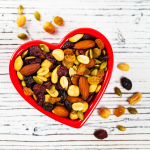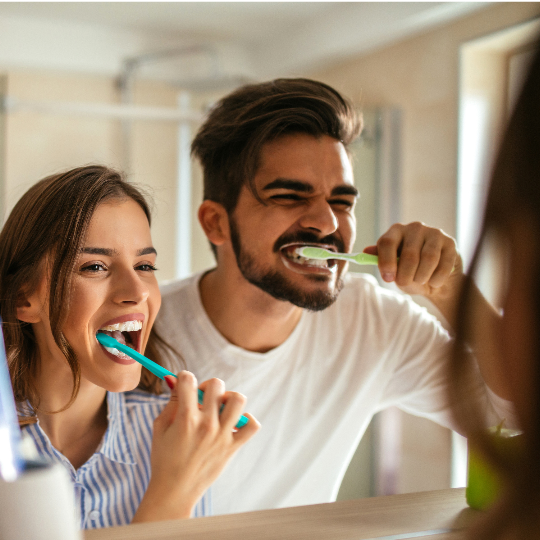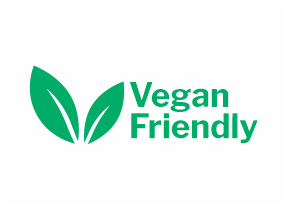Do vegans need to protect their teeth more than others?
Group Pharmaceuticals posed this question and many others to Dr. Kasturi Khatniar, Vegan Dental Surgeon. Dr. Khatniar has been advocating veganism and its benefits for more than two years.
Veganism is the practice of abstaining from the use of animal products; be it diet, fashion or cosmetics. By being vegan, you save one animal, 45 lbs of grains, 1000 gallons of water and 30 sq ft of forest land per day.
Do vegans have Oral Care issues?
Personally, in my day-to-day practice, I have never seen a vegan or vegetarian tending to have more cavities than a non-vegetarian. And plant-based food is easily absorbable in the gut and digestible, making it less stuck in the oral cavity for a longer time. This makes vegan teeth less prone to cavities.

We are given to understand that vegans are deficient in vitamin B12. How can they protect themselves against this gum disease that may cause tooth loss?
The only vitamin vegans tend to develop deficiency of is Vitamin B12, which is not found in fruits and vegetables. However, there are B12-fortified cereals, yeasts, plant milks, and soy products that have this vital nutrient. We also recommend that they take supplements of vitamin B12.

What are the best demineralizing foods for vegans to have a healthy mouth and teeth?
Vegans get their calcium, which is very necessary to strengthen bones and tooth enamel and build strong teeth through nut milk, tofu, soyabeans, lentils, leafy greens like spinach, and mustard greens, broccoli, mustard greens, and cabbage.
A 10-15 mins exposure to sunlight, especially during the winters, is a must for a plant-based diet to avoid Vitamin D deficiency.
Good vegan sources of potassium include avocadoes, bananas, potatoes, prunes, sweet potatoes, swiss chard, and tomatoes. Phosphorus rebuilds your tooth enamel, and you can get it from vegan foods such as lentils, pumpkin seeds, and soybeans.
Is it true that because vegans do not consume proteins, their teeth are not strong?
Protein deficiency in vegans is a myth. Only plants have the ability to take nitrogen from the air, break their molecules apart and incorporate that nitrogen into amino acids and then make protein. Any protein you get from an animal is simply recycled plant protein. In fact, when you stop eating meat, and opt for vegetarian food, you can help create a healthier environment for your teeth and gums. Here are few amazing sources of protein per 100 gm.
- Seitan-72 gm
- Spiriluna-57 gm
- Nutritional yeast-52 gm
- Hemp seeds-31 gm
- Pumpkin seeds-30gm
- Lentils-26 gm
- Kidney beans-24 gm
- Mung beans-24 gm
- Black beans-22 gm
- Sunflower seeds-21gm
- Almond-21 gm
- Chickpeas-19 gm
- Tempeh-19 gm
- Flaxseeds-18 gm
- Sesame seeds-18 gm
- Chia seeds-17 gm
Flaxseeds and walnuts are also great source of Omega-3 fatty acids. Hence seeds and nuts are a must if you are switching to a plant-based diet.

What about sources for amino acids that help control plaque?
Arginine, an essential amino acid, helps prevent cavities and gum disease, and controls dental plaque. While it is found in meat, poultry, fish, and dairy, vegan sources include chickpeas, lentils, and soybeans; peanuts; and pumpkin seeds.

How does vegan sources of vitamin A prevent dry mouth?
Vitamin A keeps your mucous membranes healthy and helps prevent dry mouth. Bright orange foods such as apricots, cantaloupe, carrots, pumpkin, and sweet potatoes, and leafy green foods like kale, and spinach are great sources of vitamin A.

What is your advice for vegans on good oral hygiene?
Being a Dental Surgeon, like others, I too suggest brushing twice daily and floss whenever necessary. Rinse your mouth with water, vigorously for 20 seconds to help eliminate leftover food particles and acid between your teeth and in your mouth. Schedule visits to your dentist also.
A healthy body starts from a healthy mouth. Maintain oral hygiene and choose a cruelty free diet.
Group Pharmaceuticals, manufactures of SHY-NM, vegan friendly toothpaste and other Oral Care products

